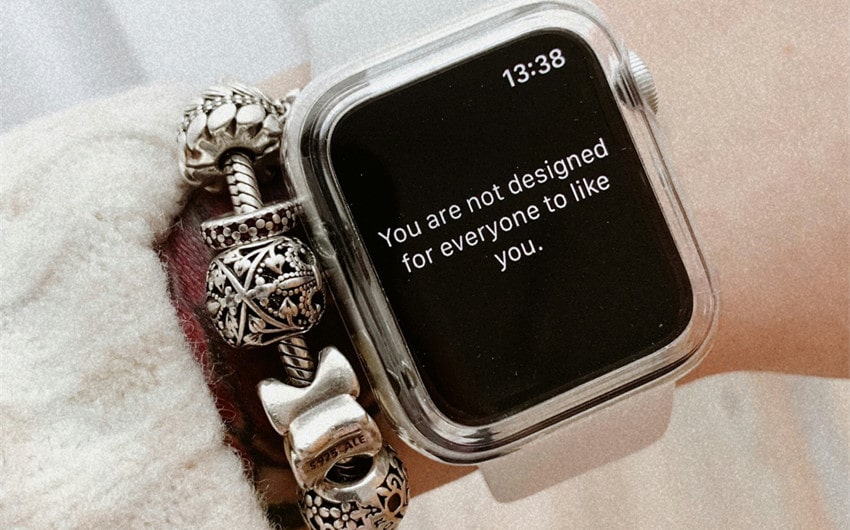8 Tips on How to Deal with Jealousy in a Relationship
Jealousy is a natural emotion that can arise in any relationship, sometimes unexpectedly. Learning how to deal with jealousy in a relationship can help prevent misunderstandings, build trust, and create a healthier connection with your partner. When left unchecked, jealousy can lead to feelings of insecurity, frustration, and even resentment.
However, by understanding its root causes and practicing healthy communication, you can turn jealousy into an opportunity for growth. This article will guide you through practical ways to manage and overcome jealousy, strengthening both your self-confidence and your bond with your partner.
1. Understanding the Root Causes of Jealousy

Jealousy often stems from deep-seated emotions and past experiences that may not be immediately obvious. Understanding these root causes is the first step toward managing jealousy in a healthy way.
Identify Triggers: Reflect on moments when jealousy arises. Is it when your partner spends time with others, or perhaps when they’re busy and less communicative? Recognizing specific triggers helps in addressing the exact issues that fuel jealousy.
Consider Past Experiences: Often, jealousy may be tied to past relationships, betrayals, or abandonment issues. Understanding these connections can help you see how past events affect your current emotions. By identifying past wounds, you’re better equipped to separate past fears from present reality.
Acknowledge Insecurities: Personal insecurities, whether about appearance, success, or self-worth, often fuel jealousy. Recognizing these insecurities enables you to work on self-improvement, which helps minimize jealousy. Knowing the “why” behind your feelings gives you the power to address them directly and constructively, making way for healthier interactions with your partner.
2. Open Communication with Your Partner
Open, honest communication is one of the most effective ways to manage jealousy in a relationship. Discussing feelings openly with your partner not only brings you closer but also allows for greater understanding and trust.
Approach with Honesty: Express your feelings of jealousy without assigning blame. Use “I” statements, like “I feel insecure when…,” to keep the focus on your emotions instead of accusing your partner. This reduces defensiveness and keeps the conversation constructive.
Be Vulnerable: Sharing your feelings of jealousy might make you feel exposed, but vulnerability fosters intimacy. Opening up about your fears allows your partner to support you and work together toward solutions that benefit both of you.
Ask for Reassurance: Sometimes, all you need is a little extra reassurance. Let your partner know when you feel insecure, and ask for encouragement. Many partners are happy to provide comfort and reinforce their commitment when they know it’s helpful to you.
3. Building Self-Confidence and Self-Worth

Self-confidence is a vital component of managing jealousy because it shifts the focus from worrying about the relationship to appreciating your own value. Often, jealousy is rooted in feelings of inadequacy or fear that we’re not “enough” for our partner.
Focus on Personal Achievements: Recognize and celebrate your own accomplishments, whether they’re related to work, hobbies, or personal growth. Building a sense of pride in who you are and what you’ve achieved reduces the need to rely on validation from your partner, which can ease feelings of jealousy.
Practice Self-Care: Engage in activities that make you feel good about yourself, whether that’s regular exercise, developing a new skill, or spending time with friends. The better you feel within yourself, the less likely you are to feel threatened by external factors in your relationship.
Challenge Negative Self-Talk: Notice when self-doubt or insecurities creep in, and consciously replace these thoughts with positive affirmations. Remind yourself that you are valuable, capable, and worthy of love and respect. When you cultivate a strong sense of self-worth, jealousy fades because you trust in your own unique value, which is key to a balanced relationship.
4. Setting Healthy Boundaries in the Relationship
Healthy boundaries are essential for maintaining trust and comfort in a relationship. Boundaries clarify each partner’s expectations, creating a safe space where both can feel secure and understood.
Discuss Boundaries Openly: Talk to your partner about what boundaries feel necessary for both of you to feel safe and respected. For instance, if social interactions with certain people or activities stir up jealousy, openly share your concerns without making accusations. Setting boundaries is about finding mutual comfort rather than controlling behavior.
Respect Each Other’s Space: Boundaries aren’t just about rules; they’re also about allowing each other the freedom to be individuals within the relationship. Respecting your partner’s independence, interests, and friendships helps reduce feelings of jealousy, as it shifts the focus from fear to trust.
Reassess and Adjust Boundaries as Needed: Relationships evolve, and so do personal boundaries. Check in with each other periodically to ensure that established boundaries still feel fair and balanced. Flexibility in setting boundaries strengthens trust, helping both partners feel secure and valued. By establishing boundaries, you create a foundation of respect and mutual understanding, which can significantly ease jealousy and create a healthier, more supportive relationship dynamic.
5. Focusing on Trust and Strengthening the Bond

Trust is the backbone of any healthy relationship, and strengthening it can significantly reduce feelings of jealousy. When you trust your partner, you’re more likely to feel secure, even when situations that would normally trigger jealousy arise.
Engage in Trust-Building Activities: Spend quality time with each other through activities that encourage connection and communication. This might include sharing goals, taking up a new hobby together, or planning meaningful dates. Shared experiences foster a sense of partnership and deepen trust, reinforcing the belief that you’re in this together.
Keep Your Promises: Trust is built by showing reliability in both small and large commitments. Consistently keeping promises, whether it’s showing up on time or being honest about plans, strengthens the foundation of trust. Knowing you can rely on each other reduces feelings of doubt or suspicion that may fuel jealousy.
Celebrate Each Other’s Successes: Support your partner’s achievements and celebrate their individuality. When you acknowledge each other’s accomplishments and express genuine happiness for them, it reinforces mutual respect and admiration. By focusing on trust and positive reinforcement, you create an environment where jealousy has little room to thrive because both partners feel valued and respected.
6. Practicing Mindfulness and Emotional Control
Mindfulness is a powerful tool for managing jealousy, as it allows you to observe your emotions without immediately reacting to them. By practicing mindfulness, you gain control over your responses, making it easier to handle jealousy constructively.
Observe Your Emotions Without Judgment: When feelings of jealousy arise, instead of acting on them right away, take a moment to simply notice the emotion. Mindfulness teaches you to observe thoughts and emotions as they come and go, helping you detach from impulsive reactions. Recognize jealousy without allowing it to dictate your behavior.
Practice Breathing Techniques to Calm Down: Deep breathing exercises can help you manage intense emotions in the moment. When jealousy surfaces, try focusing on your breath—taking slow, deep inhales and exhales can reduce stress and bring clarity, allowing you to respond thoughtfully rather than reactively.
Redirect Negative Thoughts: When jealousy provokes negative thinking, consciously redirect your thoughts to something positive. For instance, if jealousy makes you worry about your partner’s loyalty, focus instead on happy memories together or moments when they demonstrated commitment. Mindfulness, combined with positive redirection, helps you develop emotional control, allowing you to face jealousy with a clear mind and a balanced heart.
7. Recognizing and Addressing Unhealthy Jealousy Patterns

Jealousy is natural, but it can become problematic when it turns into controlling or possessive behaviors. Recognizing when jealousy crosses the line into unhealthy territory is essential for maintaining a balanced, respectful relationship.
Identify Harmful Patterns: Start by observing your behavior and emotional responses when jealousy arises. Do you find yourself checking up on your partner, questioning their actions excessively, or feeling the need to control their social interactions? Acknowledging these behaviors is the first step toward changing them, as it allows you to see when jealousy is becoming detrimental.
Reflect on the Underlying Causes: Often, unhealthy jealousy stems from personal insecurities or past experiences that have yet to be resolved. Take some time to reflect on what may be fueling your jealousy—is it fear of abandonment, past betrayal, or low self-worth? By addressing these underlying issues, you’re more likely to find solutions that go beyond the relationship and foster personal growth.
Seek Support When Needed: If you notice repeated patterns of jealousy that are hard to control, consider reaching out for support. Talking to friends, family, or even a therapist can provide outside perspectives, helping you recognize unhealthy behaviors and develop healthier ways to express your feelings. Recognizing and addressing unhealthy jealousy patterns not only strengthens the relationship but also promotes emotional well-being for both partners.
8. When to Seek Professional Help
Sometimes, jealousy can be overwhelming and persistent, making it hard to manage on your own. Seeking professional help from a therapist or counselor can be a transformative step if jealousy is causing significant distress or conflict in your relationship.
Individual Therapy for Self-Reflection: Seeing a therapist on your own can help you understand the deeper causes of jealousy, particularly if it’s rooted in past trauma, low self-esteem, or attachment issues. A therapist can guide you through self-reflective exercises, helping you identify and address insecurities that may be affecting your relationship.
Couples Counseling for Communication: If jealousy is affecting your relationship dynamics and communication, couples counseling may be a productive option. In therapy, both partners can express their feelings in a safe, structured environment. A counselor can facilitate open dialogue, helping both of you address jealousy in a way that strengthens trust and mutual understanding.
Learning Coping Strategies: Therapy provides you with concrete coping strategies and tools for managing jealousy when it arises. Techniques like cognitive restructuring (challenging negative thought patterns), mindfulness exercises, and communication skills can help you handle jealousy constructively. Seeking professional help is a healthy and proactive choice that can ultimately lead to stronger emotional resilience and a healthier relationship.







